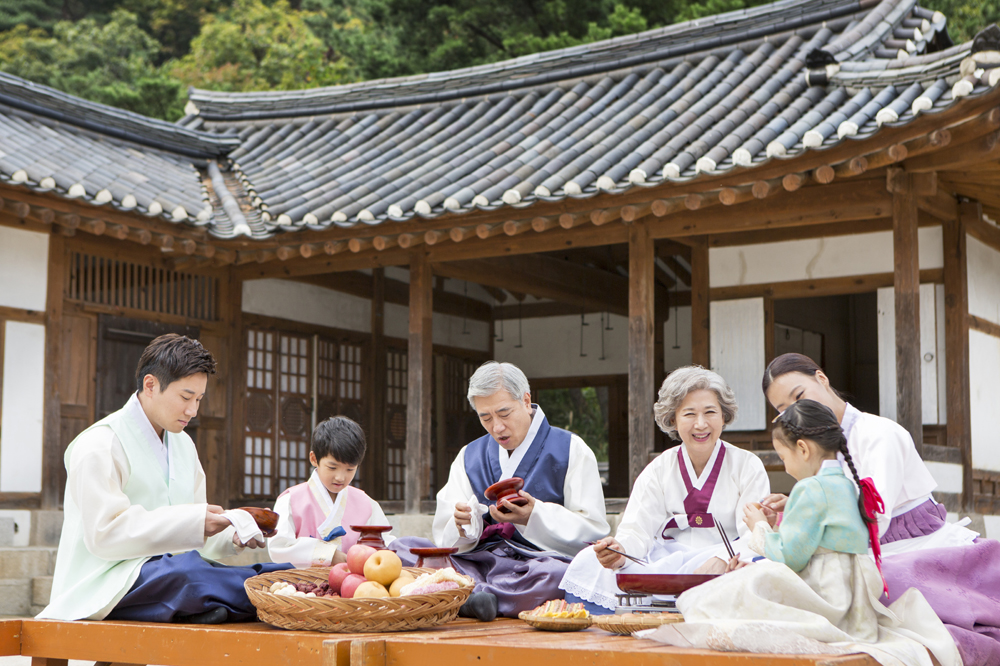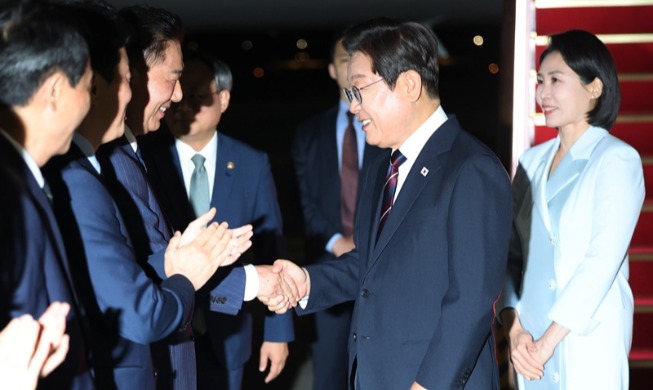- 한국어
- English
- 日本語
- 中文
- العربية
- Español
- Français
- Deutsch
- Pусский
- Tiếng Việt
- Indonesian
By Honorary Reporter Chiamaka Agbaetuo from Nigeria
Photos = iclickart
I discovered Seollal (Lunar New Year) through K-dramas and learned how such programs are not aired during the holiday period. With Seollal this year just around the corner, I compared the traditions of the holiday with those of my Igbo people in Nigeria.
Visit to hometown
Igbos visit their hometowns during the period between Christmas and New Year's Day to see family, old friends and kinsfolk. This celebration is so important that we build big houses in our hometowns to have enough room for all relatives and host events.
Similarly in Korea, Seollal is one of the few times of the year family and friends gather, with many going to their hometowns.

Koreans traditionally gather with family to catch up during the Lunar New Year holiday. (iclickart) *[Unauthorized reproduction and redistribution of the above photo is strictly prohibited under copyright laws and regulations.]
Traditional food
One constant in Seollal is the vast number of traditional foods prepared. The most representative dish of this holiday is tteokguk, or rice cake soup with beef, eggs and vegetables. A variation is manduguk, in which dumplings are added. Other foods eaten during Seollal include jeon, (fried pancakes with meat, kimchi or vegetables) and galbijjim (beef short ribs).
Igbos, who occupy five states and numerous villages, eat a staple unique to each village during the celebratory period. My village has the usual soups and rice dishes seen in many other villages, as well as our own ndudu, an aromatic dish of bean porridge made with spices. My great aunt usually prepares this and my family looks forward to this every year.
Bowing
Sebae is a Seollal aspect that I find quite appealing. This practice has children and younger people give deep bows to elderly relatives and receive money in return. After bowing, people say "Saehae bok mani badeusaeyo" (Lots of luck in the new year).
In my village, we greet elderly relatives who visit our family by saying, "Gbara m Christmas/New Year," which means, "Celebrate Christmas/New Year for me. This leads to the elders giving the person money and saying, "Use it to buy biscuits."
Honoring ancestors
Charye is a Korean ritual to honor one's ancestors featuring a large table of traditional food in front of pictures of the ancestors. Family members take turns bowing as a sign of respect.
Though my people do not have a similar rite, some do hold memorial services for parents who recently died given the rarity of everyone gathering in one place. This is also a jovial rather than solemn affair.
enny0611@korea.kr
*This article is written by a Korea.net Honorary Reporter. Our group of Honorary Reporters are from all around the world, and they share with Korea.net their love and passion for all things Korean.
Most popular
- Military discharge sets stage for reunion of all 7 BTS members
- 'We are back!' BTS Festa heralds hyped return of K-pop phenom
- K-pop streaming on Spotify skyrockets 470-fold in 10 years
- Hallyu gala MyK Festa from June 19 to feature K-pop acts
- President Lee starts G7 schedule via talks with S. Africa, Australia
